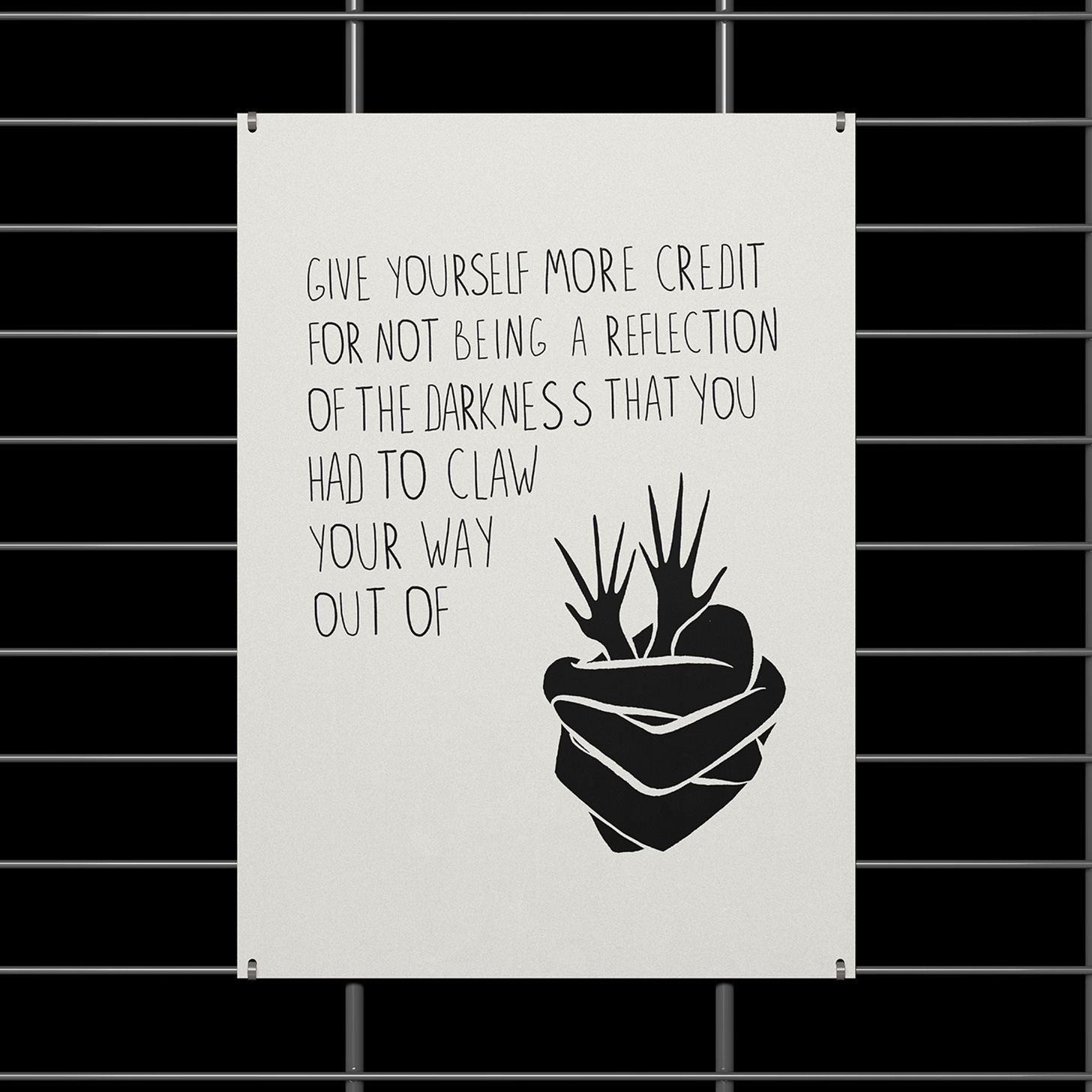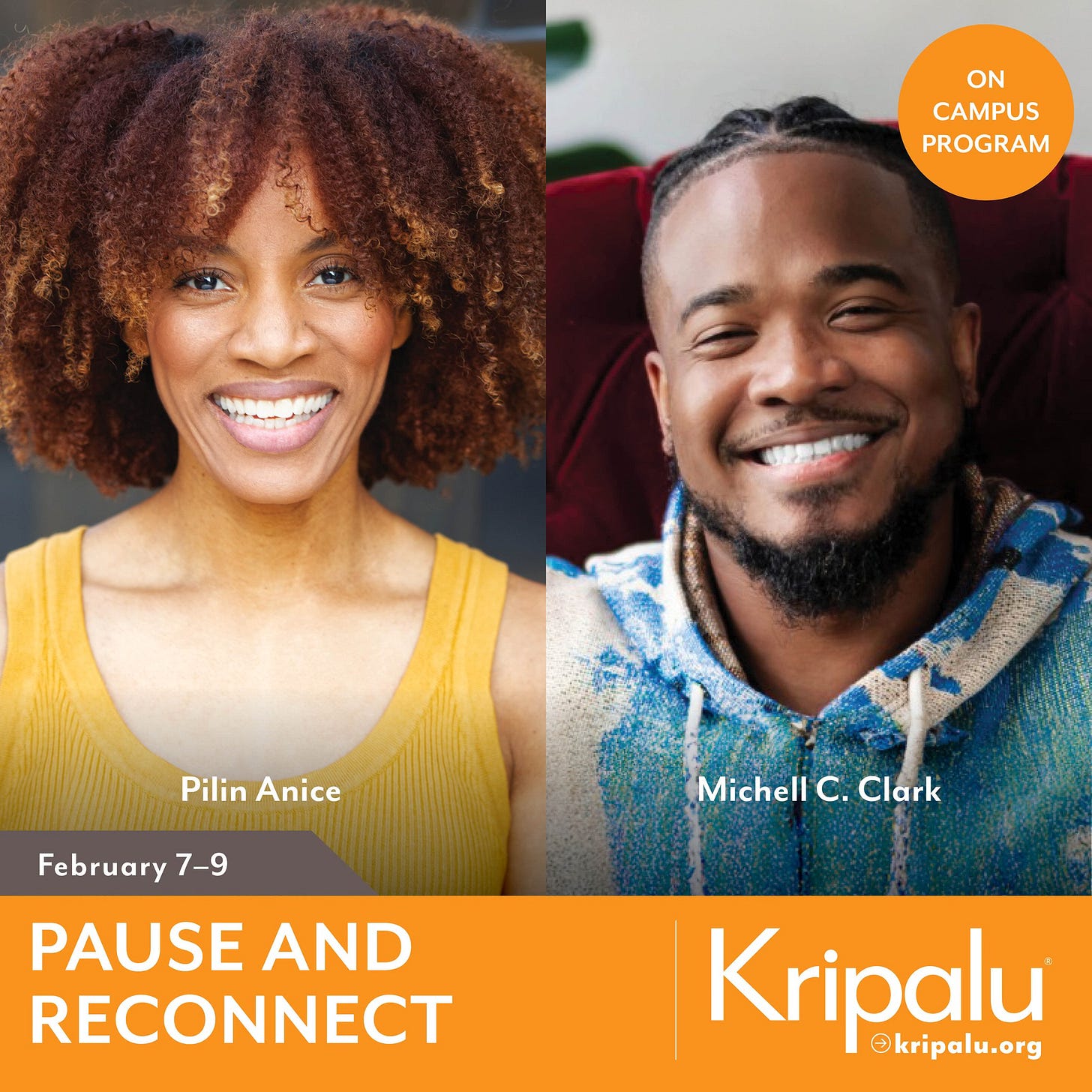A few weeks ago, I was digging through boxes in our basement. Initially, I was searching for a book about creativity that I wanted to give to a friend.
I never found the book that I was looking for, but during the 20 minutes that I spent digging through boxes as a means of avoiding adult responsibilities, I found relics of the past—dingy t-shirts, chipped coffee mugs, toddler onesies, cleaning supplies, and tattered notebooks.
I even found my 2017 daily planner.
All-black. Gold trim. Heavily creased pages. Phone number scribbled inside the cover. Lots of appointments, due dates, and household tasks scribbled in the margins—until the third week of January, that is.
As I continued to flip through the pages, I realized that the rest of the planner was entirely empty.
And that’s when I remembered who I am.
Historically speaking, using a daily planner for three of the 52 weeks in a year was on brand for me. I’ve purchased and forgotten about more planning tools than I care to think about. My aversion to planning systems in 2017 wasn’t an exception—it was symbolic of the way that I acknowledged my deficiencies, set goals to overcome said deficiencies, and still failed to follow through.
During my late 20’s, I tip-toed through the “blind optimism” phase of my goal-setting trajectory. I was old enough to know that it was time to do better, but not experienced or disciplined enough to build and sustain the systems that would make my “better” a new norm.
At the beginning of each new year, I came back from the holiday break fired up and ready to reinvent myself. I bought planners, declared new intentions, started the year strong, and fell back into my old, dysfunctional habits within a few weeks.
Year after year, words like “reinvention” and “new chapter” were prevalent on my vision boards, but absent from my approach to everyday life. I fell into a trap that has seduced and blinded many of us—believing that the start of a new year was the only change I needed to become a bigger, better version of myself.
I wasn’t blind to what I was doing. In fact, I was painfully aware—which is why I decided to call a spade a spade and opt out of New Year’s resolutions altogether.
I told myself that “New Years Resolutions didn’t work,” but what I really meant was that “New Years Resolutions don’t work for me.”
The latter was more true, but the former felt more palatable to my ego.
In the years that followed, I found myself silently judging people who posted about their resolutions on social media. It just didn’t feel realistic. I decided that everyone loudly proclaiming their intentions for a new calendar year was doing so for attention and instant self-gratification—not out of a genuine desire to change themselves, or their lives, for the better.
It felt good to poke holes in peoples’ New Years Resolutions, because I had lost faith in my ability to remain committed to my own.
Here’s the thing about faith—it can be fragile, but it’s also a renewable resource.
In the same way that certain seasons of life can make the concept of faith feel laughable, different seasons can restore your desire to choose it for yourself.
I’ve made no secret of how difficult my 2024 was. I have been tested mentally, physically, emotionally, and spiritually, in ways that I am still coming to terms with. I have every right to decide that 2025 will get whatever version of me that I can find the capacity to give.
And yet, as a newly minted 35-year-old, I’m finding myself drawn to choosing faith again—not because it’s easy, or because it’s logical, but because it’s what I need, and it’s what the world needs from me.
I need to dig deep and find reasons to work towards a better life for myself, and for my family—not because it will be easy, or because I’ll always hit my mark, but because having something to strive towards is a victory in and of itself.
I feel better and operate more purposefully when I am actively working towards goals that matter.
2025 might be an amazing year for me.
It could also very well be the most difficult year of my life.
Both—or neither—of these things could be true. I don’t know what the next 12 months will bring, but I do know that every time I’ve committed to a New Year’s Resolution, I’ve felt better in that moment.
I’ve also followed up that feel-good moment with some sort of action.
The missing piece for me has been resilience—choosing to re-open my planner after forgetting about it for a week. Revisiting my goals on February 1st with the same level of excitement as January 1st. Valuing the lessons learned just as much as the progress being made. Iterating on my initial plan to find what works.
And so, while I do have some measurable goals for 2025, a lot of what I’m working towards can be defined as intangible — “unable to be touched or grasped; not having physical presence.”
I want to re-build my excitement about the fresh start that January 1st offers, but I want to be just as enthusiastic about what I can change on February 1st, or July 18th, or November 19th. I am choosing to opt back into the thrill of the phrase “new year new me” without pretending that it’s the only day that I get to be mindful of how I show up.
I won’t see more zeroes in my bank account or more definition in my abs as a direct result of these intangible goals, but I believe that I will be happier, more confident, and more fulfilled.
New Years Resolutions are most valuable when we remember our “why.”
You might still be on the “New Years Resolutions are dead” train, and I can’t fault you for that. You might have this “personal development” thing all figured out, and if so, I applaud you for that (also, help).
But if you’re somewhere in the middle, figuring out where you’ll plant your feet, I’d like to invite you to remember the following:
A new year could be insignificant to you, or it could be everything you need to make the necessary changes. It’s up to you.
You could argue that a “new year’s resolution” is meaningless, and for you, that would be true.
You could decide that the new year is an opportunity for a fresh start, and that would also be true.
You could land somewhere in the middle and decide that the new year is one of many opportunities that you get to re-assess what is working for you, and what is not.
The ball is always in your court.
Wherever you are on the “happy new year” spectrum, I hope that you remember that you get to decide how you show up, in this moment.
And with that knowledge, I hope you decide to show up as yourself.
I hope you decide that one step forward is a step worth taking, whether it’s January 1st, February 2nd, or Nevruary 47th.
Support The Writer:
I’m Michell—I’m a 35-year-old father, husband, and writer. I’m thankful that you’ve taken the time to read my work. Any support you feel led to give in the form of a like, comment, repost, or purchase is deeply appreciated.
You can purchase my book, Eyes On The Road, here.
You can purchase my art, some of which is displayed below, here.
Upcoming Events:
Come gather, commune, and write (!) with me in real life at my “Pause and Reconnect” retreat, from February 7th - 9th! It’s at the prestigious Kripalu Center in Stockbridge, Massachusetts.
I’m co-hosting alongside my friend, D9 sister, and fellow wellness practitioner Pilin Anice, who is a lead member of Kripalu’s faculty.
Bring your journals, comfy clothes, and favorite pens.
Book Me!
I write—but I also deliver keynotes, moderate panels, lead workshops, and perform poetry. I get fits off, too—free of charge. I’d love to learn more about how I can share my perspective, experience, and tools with your organization, community, or audience. Please reach out to partnerships [at] thecreativesummer [dot] com.
(Some of) my 2024 Speaking Engagements:
Poetry Performance at Nike Black Voices Community Dinner (watch)
Affirmations Panel at REC Philly Voter Activation Event
Keynote Speech at Nate Evans’s “Get To Worthy” Summit
Fireside Chat and Affirmation Workshop at Princeton University
Watch a clip from keynote speech at my friend Nate Evans Sr.’s “Back To Worthy” summit below:












Love bro! Also happy belated!!